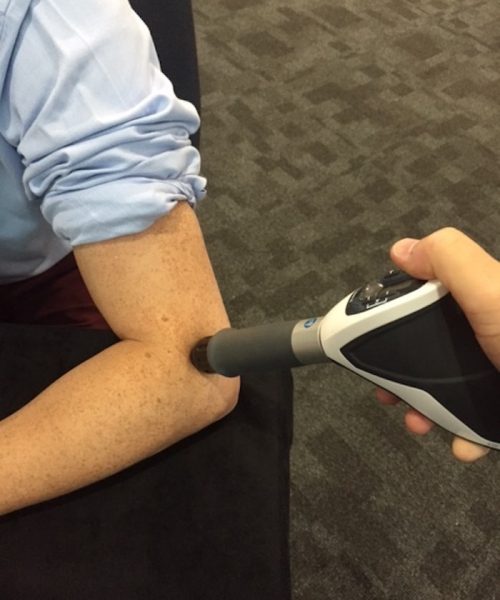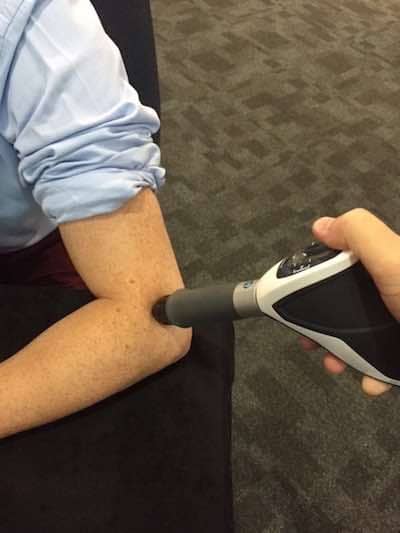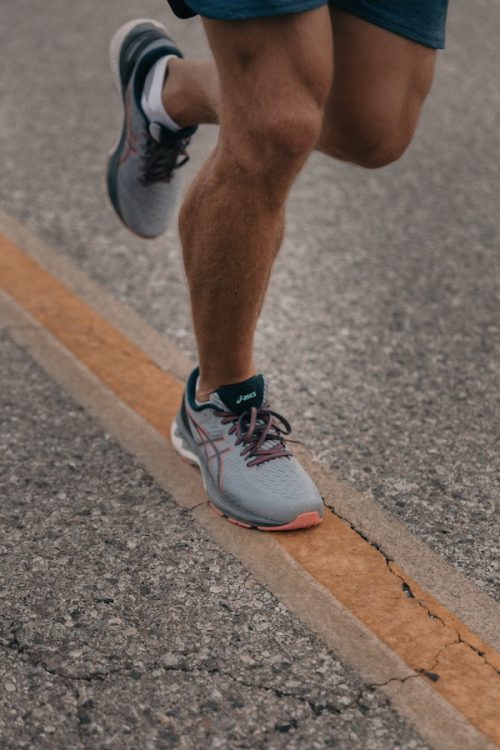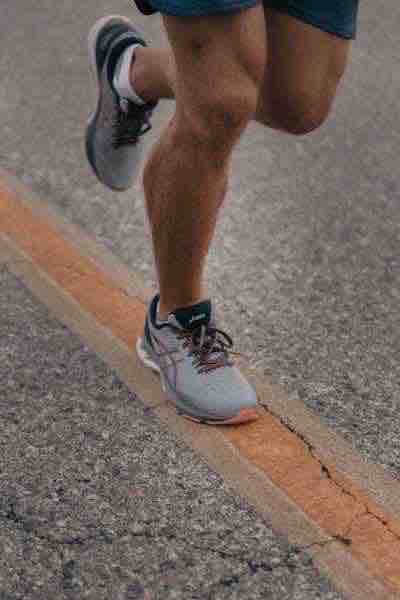Shockwave Therapy for Treatment Resistant Conditions


At Mimico Medical our physiotherapists are committed to evidence-based treatments that eliminate pain, improve body mechanics and prevent future injury.
Scientific studies have shown that shockwave therapy is effective in treating specific injuries – even when more traditional manual therapies haven’t worked.
As part of our efforts to expand access to care in our community, we are proud to offer shockwave therapy to our patients that have treatment-resistant injuries and conditions. Make an appointment with our team of physiotherapists in Etobicoke and we will consult on whether shockwave therapy is the right choice for you.
What is Radial Shockwave Therapy?
Radial shockwave therapy – commonly referred to as just “shockwave therapy” – is a non-invasive treatment in which a device passes acoustic shockwaves through injured tissue. The handheld shockwave device is pressed against the skin surrounding the injury and high energy waves are emitted. The procedure is performed by a qualified physiotherapist in communication with the patient.
Shockwave Therapy is an effective treatment for:
Shock wave therapy is used for various musculoskeletal injuries and degenerative conditions. The treatment is often applied to tendons where they interact with the bones.
Some of the most common injuries and conditions where shockwave therapy is effective:
Plantar Fasciitis
Plantar fasciitis is a condition in which chronic degenerative changes under the foot (plantar fascia) cause pain near its attachment to the heel bone (calcaneus).
Plantar fasciitis is a common cause of heel pain. Patients often experience a stabbing pain that is most severe during their first few steps in the morning. There is significant chronic pain while walking and running. The condition is notoriously difficult to treat with a high rate of recurrence.
Plantar fasciitis is a condition commonly found in runners. Other at-risk groups are people who are overweight or spend many hours working on their feet.
Shockwave therapy is effective in reducing the pain associated with plantar fasciitis. Randomised controlled trials have shown it to be an effective long-term therapy when compared to placebo. Most patients can expect a significant reduction in heel pain – and no further need for pain medication. Dry needling for plantar fasciitis has also shown good results for patients.
Pelvic Floor Physio


Achilles Tendinitis Treatment
Achilles tendinitis is a condition in which chronic degenerative changes cause pain of the achilles tendon. It is often caused by overuse, and is a common injury for active people, especially those in middle-age. Runners can develop the condition when increasing the intensity of their runs. Also at risk are ‘weekend warrior’ athletes who play sports like basketball and tennis.
The main symptom of achilles tendinitis – sometimes referred to as achilles tendinopathy – is pain at the back of the leg or heel of the foot. It will typically start as an ache after exercise. If left untreated it will develop into a persistent pain. Tenderness and stiffness along the achilles tendon is a common symptom also.
Achilles tendinitis is further classified as insertional or non-insertional. Insertional means pain is at the site where the achilles tendon is attached to the heel bone (calcaneus). Non-insertional means pain is located higher up in the body of the tendon.
Randomised controlled trials have shown shockwave therapy to be an effective long-term therapy for insertional achilles tendinitis when compared to placebo. Positive outcomes are seen even when other treatments have failed. Patients can expect a reduction in achilles pain and increase in functionality. Physiotherapists will often treat tendinitis with a combination of shockwaves and loading exercises.
Acupuncture
Custom Knee Brace Clinic
Contact Our Team of Physiotherapists Today
For treatment resistant injuries and conditions, shockwave therapy can act as breakthrough you need. Get in touch with us today via our contact form and a member of our Etobicoke physiotherapy team will get right back to you.
Tennis Elbow Treatment
Tennis elbow is the common term for the condition lateral epicondylitis. Chronic degenerative changes cause pain at the attachment of muscle onto the elbow. The tendons in the elbow – which work to bend the wrist – have become damaged from overuse. Symptoms include pain that radiates from the elbow, and weakness of the hands that affects everyday life.
It can cause significant pain and distress with simple movements of the affected arm. It is considered an injury that is relatively more difficult to treat. For this reason patients sometimes turn to alternative treatments – such as making an appointment at our acupuncture clinic.
As the name suggests, playing racquet sports can be a risk factor for developing tennis elbow. It is also common among people whose jobs require working with the hands and forearms. Trades like plumbers, painters and carpenters are at risk for developing this painful condition.
Randomised controlled trials have not shown shockwave therapy to be an effective long-term therapy for tennis elbow when compared to placebo. But it is still considered as a treatment option when conservative measures have failed. For patients that respond to shockwave therapy, they can expect a significant reduction in pain. This corresponds with an increase in wrist and hand function.
Most patients can expect to receive treatment over several weeks before experiencing benefits. However, once experiencing a reduction in pain, treatment is halted and the patient can monitor their own symptoms.
Trigger Point Dry Needling
Manual Therapy
Other Common Injuries and Conditions for Shock wave Therapy
Patellar Tendonitis of the Knee
While shockwave therapy can be very effective for knee pain, in some cases we may consult with you regarding knee braces and our clinic that specializes in Donjoy knee braces.
Calcific Tendonitis of the Shoulder
Shockwave Therapy - Frequently Asked Questions
How does shockwave therapy work?
A treatment device is used to create an electric current, which in turn generates high-energy pulses of acoustic waves – or shockwaves. A physiotherapist positions a probe against the skin, and the shockwaves pass through to the muscles and tissue. Shockwaves create low-level inflammation in that region. This facilitates the natural healing process of that tissue.
Does shockwave therapy have side effects?
In clinical trials, shockwave therapy has proven to be safe with no major complications. The only reported side effect is discomfort during the procedure in some patients. This discomfort is monitored by a trained physiotherapist in communication with the patient.
How much does shockwave therapy cost?
At Mimico Medical, a radial shockwave therapy session costs $50. This is in addition to the cost of a session with one of our physiotherapists – which is $120 for a 1 hour initial consultation and $90 for any additional appointments of 45-minutes. Shockwave therapy has been shown to be effective using a regimen of 3 treatments in 1-week intervals.
Can I exercise after shockwave therapy?
Yes. There are no restrictions to physical activity after a shockwave therapy session.
Is shockwave therapy covered by OHIP? Is it covered by private insurance?
Shockwave therapy is not covered by OHIP. Like other physiotherapy treatments, it is covered by many private insurance policies offered by employers.
Contact Our Team of Physiotherapists Today
We are accepting new patients for shockwave therapy in Etobicoke. Get in touch with us via our contact form for any inquiries or appointments.
Our team at Mimico Medical Physiotherapy is committed to expanding access to care in our community of Etobicoke. We offer a full range of physiotherapy services. We are committed to women’s health and can help new mothers with postpartum physiotherapy.

